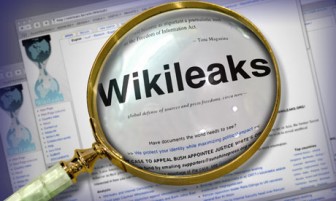A cable from the US embassy in Georgetown released by WikiLeaks has revealed cloak and dagger interactions between Cuban doctors stationed here and the US mission in 2007.
The cable headed `Cuban doctors fearful in Guyana’ and dated March 30, 2007 said the US mission had interviewed six applicants under the Cuban Medical Personnel programme for significant public benefit parole (SPBP). Under the latter, normal immigration procedures are bypassed and temporary asylum can be granted especially when there is a benefit to the government. The programme is administered by Immigration and Customs Enforcement.

“As they await a decision on their applications, some of these doctors fear that Cuban Embassy officials or Guyanese police will find them to deport them back to Cuba. One is already experiencing repercussions and informed the (consular officer) of recent changes to the medical brigade program as a direct result of the SPBP program”
At the point that the cable was dispatched to Washington, one doctor had been granted parole and departed for the US. Two had legal status in Guyana as one was married to a Guyanese woman and the other came to Guyana independently. The three others had completed the medical brigade programme and stayed in Guyana without legal status. “These `illegals’ fear that Cuban Embassy officials or Guyanese police will find them to deport them back to Cuba,” the cable read.
It said that the most recent applicant speculated that someone must have informed the Cuban authorities that he had visited the US Embassy to request parole.
He related that the Cuban Embassy had assigned him to accompany an “ill” Cuban doctor that had to return to Cuba. “The applicant refused to board the plane because of a hunch that he was being tricked into repatriating himself. Subsequently, Cuban Embassy authorities told him that his passport would be canceled immediately. They also removed him from the medical brigade and labeled him a deserter,” the cable said.
The applicant also informed the Consular Officer of recent changes to the medical brigade programme as a direct result of the SPBP programme. He said that the Cuban Medical Brigade programme dispatched a new manager to Guyana in December 2006 to crack down on Cuban medical personnel that have intentions to request parole or flee Guyana. “Cuban medical personnel who apply for parole are ostracized. Any Cuban medical professional who maintains communication with parole applicants is at risk of losing his/her legal status in Guyana and job with the medical brigade,” the cable added.
The cable also revealed that the Cuban doctor who was approved for parole was hesitant to travel because he feared for the safety of his female colleagues whose applications are still pending. It said that three of the pending applicants were in hiding and were reporting that they could not move freely for fear that Guyanese police or Cuban embassy personnel might apprehend them and repatriate them to Cuba.
During their interviews, three of the Cuban applicants explained to the consular officer that upon arrival in Guyana, medical personnel are forced to surrender their passports to the Cuban Embassy. The cable said that their passports are returned to them just as they are about to board the plane to return to Cuba after completing their two years of service.
“The applicants that came to the Embassy with their passports risked arrest by fleeing from the airport rather than returning to Cuba. They reported that `official-looking’ people chased them as they ran to a taxi and drove away from the airport. They went into hiding until they felt safe enough to come to the U.S. Embassy to file an application for parole.“
The cable contended that Cuban medical personnel have meagre funds available to them. “They receive very low wages compared to their Guyanese counterparts, and their contracts require them to relinquish fifty percent of any overtime pay to the Central Unit for Medical Cooperation (UCCM) in Havana. The Cuban doctor’s monthly salary is equivalent to US$500 from which US$100 is deducted on a monthly basis and contractually remitted back to the UCCM. Overtime is accumulated at the rate of US$1.25 per hour, and doctors on the overnight shift make US$2.50 per night. In comparison, Guyanese doctors typically make US$1,500 per month.
The final renewal of the doctor’s visas is done six months prior to the conclusion of their medical mission so that the termination of their legal status will coincide with their repatriation to Cuba,” the cable added.
The cable said that Cuban applicants for SPBP said that the only reason the Post does not receive many more parole applications is that applicants are terrified of being seen entering the US Embassy. “ConOffs sense that Cuban medical personnel are willing to take the risk of requesting parole; however once they do, they are faced with months of delay and uncertainty. Since many applicants are requesting parole after they have completed the medical mission, they are no longer legally employed and unable to subsist on their meager savings while awaiting a decision from DHS (Department for Homeland Security) that can take months to process.”






